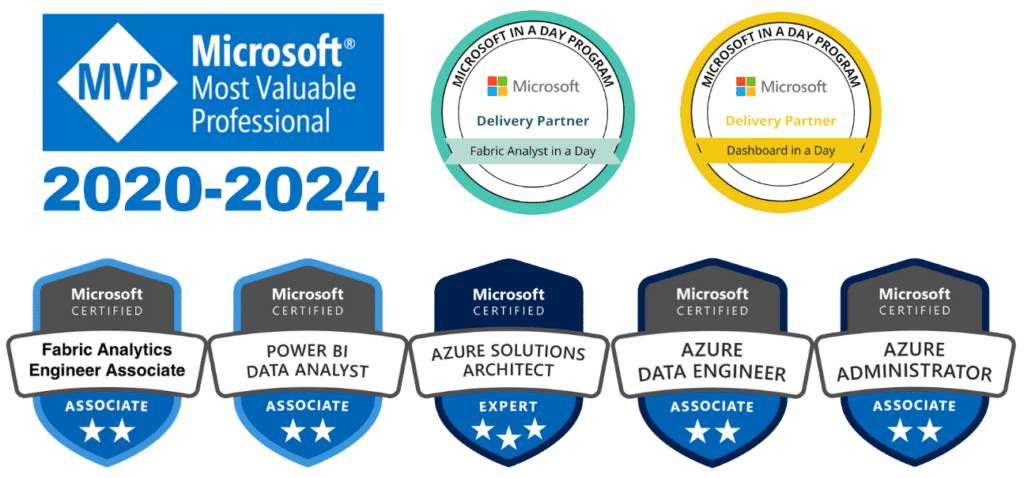In the age of digital transformation, data is a cornerstone of decision-making and strategic growth. However, with increasing amounts of sensitive data being collected and analyzed, the importance of data governance and security has never been greater. Businesses must ensure that their data is accurate, accessible, and secure while complying with industry regulations and policies.
Power BI, Microsoft’s business intelligence platform, goes beyond providing powerful analytics and visualization capabilities—it also prioritizes robust data governance and security. By combining advanced features with seamless user experiences, Power BI empowers organizations to manage their data responsibly and securely.
What Is Data Governance and Why Is It Important?
Data governance refers to the processes and frameworks that ensure data is accurate, consistent, and managed responsibly throughout its lifecycle. Effective governance allows organizations to establish trust in their data, avoid compliance risks, and enhance operational efficiency.
Security, as a subset of governance, ensures that sensitive data is protected from unauthorized access and breaches. Together, governance and security create a strong foundation for businesses to leverage data without compromising its integrity.
How Power BI Enables Data Governance
Power BI provides a suite of features designed to simplify and enhance data governance, ensuring that organizations can maintain control and transparency over their data assets.
Centralized Data Management
Power BI integrates seamlessly with Microsoft’s ecosystem, enabling businesses to manage their data centrally. Using tools like Microsoft Purview, organizations can create data catalogs, monitor usage, and establish lineage tracking. This centralized approach helps teams maintain visibility into how data flows across the organization.

Consistent Data Models
The platform allows users to create shared datasets, ensuring consistency across reports and dashboards. By promoting the use of single-source-of-truth datasets, Power BI minimizes errors caused by duplicate or outdated data.
Auditing and Monitoring
Power BI includes robust auditing capabilities, enabling administrators to track data usage, access patterns, and report sharing. These insights not only support compliance efforts but also help organizations optimize their data workflows.
Data Classification and Sensitivity Labels
To ensure proper handling of sensitive data, Power BI supports sensitivity labels integrated with Microsoft Information Protection. These labels allow businesses to classify data based on its sensitivity level and apply policies to control how it is shared and accessed.
How Power BI Strengthens Data Security
Data security is a key pillar of Power BI’s design. The platform offers advanced features to safeguard data while ensuring seamless access for authorized users.
Role-Based Access Control (RBAC)
Power BI allows administrators to assign specific roles and permissions to users based on their responsibilities. By restricting access to only what is necessary, RBAC minimizes the risk of unauthorized access to sensitive data.
Row-Level Security (RLS)
RLS enables organizations to control which data a user can view within a dataset. For instance, regional managers can be restricted to seeing data relevant to their territories, ensuring confidentiality and compliance with data-sharing policies.
Encryption and Secure Connections
All data within Power BI is encrypted, both at rest and in transit. This ensures that sensitive information remains protected during storage and while being shared across networks.
Integration with Azure Security Tools
As part of the Microsoft ecosystem, Power BI benefits from Azure’s robust security infrastructure. Features like Azure Active Directory and Multi-Factor Authentication (MFA) enhance access security, while Azure Sentinel provides threat detection and response capabilities.
Compliance and Regulatory Support
Organizations often need to comply with industry-specific regulations, such as GDPR, HIPAA, or ISO standards. Power BI simplifies this process by providing compliance-ready features and documentation. The platform aligns with Microsoft’s stringent security and compliance practices, offering built-in support for various regulatory requirements.
Secure Collaboration and Sharing
Power BI enables secure collaboration without compromising data integrity. Users can share reports and dashboards securely using the Power BI Service, which incorporates advanced security features to protect shared content.
Workspaces in Power BI allow teams to collaborate while maintaining control over access and permissions. Shared content can be published to specific audiences, ensuring that sensitive data is visible only to those who need it.
Practical Applications of Power BI’s Governance and Security Features
Financial Institutions
Banks and financial organizations use Power BI to analyze customer data and track performance metrics. Features like RLS ensure sensitive financial information is accessible only to authorized personnel.
Healthcare Providers
Hospitals and clinics leverage Power BI to monitor patient outcomes and operational efficiency. Sensitivity labels help protect patient data and maintain compliance with HIPAA.
Retail Enterprises
Retailers use Power BI to track sales trends and inventory levels. Role-based access controls ensure that sales teams and supply chain managers view only relevant data.
Government Agencies
Public sector organizations rely on Power BI for transparency and accountability. Advanced encryption and auditing features ensure that classified information remains secure.
Best Practices for Maximizing Power BI’s Governance and Security
- Implement Clear Policies: Establish clear data governance policies that outline roles, permissions, and security protocols.
- Use Shared Datasets: Promote the use of certified datasets to ensure consistency across reports and dashboards.
- Monitor Regularly: Use Power BI’s auditing and monitoring features to track data usage and identify potential security risks.
- Train Teams: Provide training on data governance and security practices to ensure all users understand their responsibilities.
Conclusion
Power BI goes beyond analytics by offering a comprehensive framework for data governance and security. From managing sensitive data to complying with industry regulations, the platform provides tools that empower businesses to use their data responsibly. By combining advanced security measures with user-friendly features, Power BI ensures that organizations can focus on insights without compromising on governance.
If you’re ready to leverage Power BI for secure, compliant data analytics, contact us today. Let us help you build a foundation of trust and confidence in your data.
